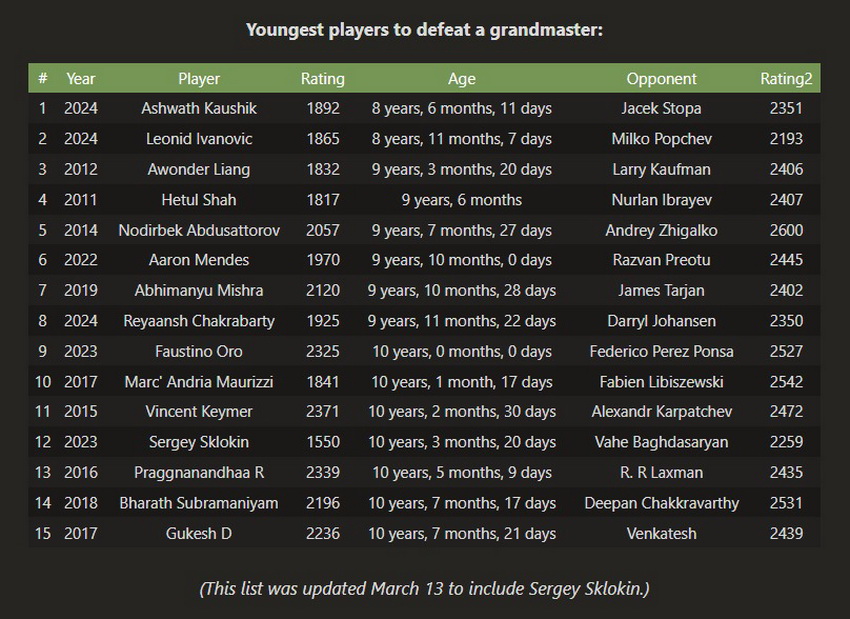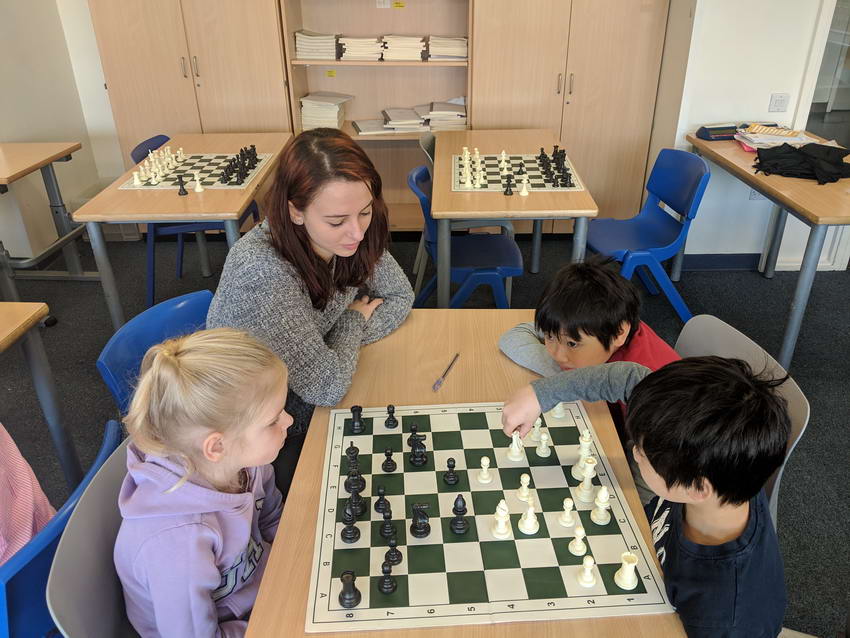The game of chess is witnessing a fascinating trend. New research by Chess.com shows that grandmasters are now achieving their titles at an earlier age than ever. Will the chess world see 10- or 11-year-olds becoming grandmasters in the next few years?
In the past year, we’ve seen a surge in children scoring extraordinary results. Records that would’ve seemed unbreakable only five to 10 years ago aren’t as shatterproof as we once thought, and it’s just a matter of time until they are broken again. “Child’s play” as some say.
Here are some examples:
- FM Faustino Oro (Argentina). Became the youngest ever 2300-rated player, at nine years and three months last year, and is the youngest ever to score an IM norm.
- WCM Bodhana Sivananandan (England). Won the World Youth Championship Girls under 8 in classical, blitz and rapid scoring 33/33, becoming England’s first youth chess champion in 25 years. She’s currently the world’s highest-ranked player under 9 years.
- Ashwath Kaushik (Singapore). Broke the record for youngest player to defeat a grandmaster in classical chess, one month after Leonid Ivanovic broke the previous record from 2012.
- Roman Shogdzhiev (Russia). Beat five grandmasters in the 2023 World Rapid & Blitz Championship.

The results appear to be a part of a new trend as shown by Chess.com research that looks at the age of players who secure the grandmaster title.
While the average age for players achieving the most prestigious title in chess was 30 between 1975-1979, it dropped to 22.8 between 2020 and 2024. The highest age for a new GM was 32.8 in 1977. More then four decades later, in 2021, the average age is down to a record low of 20.9.
10 players are currently pending approval for the GM title in 2024. The average age is down to 21.4, the second lowest to date.
Article source chess.com







 Our Chelsea Chess Club reached Level 2 of the ECF Development Pathway scheme
Our Chelsea Chess Club reached Level 2 of the ECF Development Pathway scheme